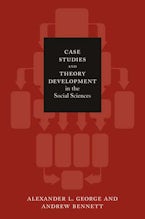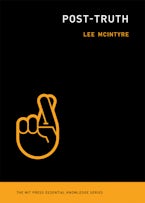In this book, George and Bennett explain how research methods such as process tracing and comparative case studies are designed, carried out, and used as the basis for theory development in social science. They provide an invaluable research guide for any scholar interested in the case study approach. But the book is much more than an account of how to do case study research. The authors also offer a sophisticated discussion of the philosophy of science that will be useful to anyone interested in the place of case-study methods in broader debates about social science methodology, and they give a discerning analysis of policy-relevant theory that is sure to draw the attention of a research community increasingly concerned about the social and political relevance of modern social science. In scope, clarity, and erudition, this book sets a new standard not only in the analysis of case study methods, but also in the study of social science methods more broadly.
David Dessler, Associate Professor of Government, College of William & Mary
This book combines clear and concise instructions on how to do qualitative research with sophisticated but accessible epistemological reasons for that advice. The volume provides step-by-step templates on ways to design research, compare across cases, congruence test and process trace, and use typological theories. This guidance is illustrated with dozens of concrete examples. Almost no other methodology text comes close to matching the authors' top-to-bottom synthesis of philosophy of science and practical advice.
Colin Elman, Executive Director, Consortium on Qualitative Research Methods, Assistant Professor of Political Science, Arizona State University
This landmark study offers to scholars of all methodological persuasions a philosophically informed, theoretically nuanced, and methodologically detailed treatment of case study analysis. With this book Alexander George and Andrew Bennett help all of us in improving our research, teaching, and disciplinary debates.
Peter J. Katzenstein, Walter S. Carpenter, Jr., Professor of International Studies, Cornell University
Case Studies and Theory Development in the Social Sciences makes an indispensable contribution to the growing literature on qualitative methods in the social sciences. It provides a definitive analysis of case study methods and research designs, anchors those methods in contemporary philosophy of science, and argues that case study, statistical, and formal approaches can and should be mutually reinforcing in the development and testing of social theories.
Jack S. Levy, Board of Governors' Professor, Rutgers University
Today, more and more social scientists recognize the importance of cases in social and political research and are looking for new ways to make their research more case oriented. George and Bennett show how in this important new work. The beauty of their approach is their careful integration of theory and method and their conviction that the pursuit of empirical knowledge is profoundly theory dependent.
Charles Ragin, Professor of Sociology, University of Arizona
Andrew Bennett and Alexander George have written an immensely helpful practical guide to the case method. It offers sharp insight on scientific inference and very useful how-to guidance on doing case studies. Graduate students in social science: don't leave home without it!
Stephen Van Evera, Professor of Political Science, Massachusetts Institute of Technology
The history of social science shows that well-designed case studies can be both a fertile source of new theories and a powerful tool for testing them. Case Studies and Theory Development in the Social Sciences raises our understanding of case study methodology to a new level of rigor and sophistication. George and Bennett provide a careful analysis of the virtues and pitfalls of comparative case study research and offer valuable advice for any scholar engaged in qualitative research. The more widely this book is read, the better future social science will be.
Stephen M. Walt, Robert and Renée Belfer Professor of International Affairs, John F. Kennedy School of Government, Harvard University
This is an extraordinarily valuable book—a guide written with the practitioner in mind, very sophisticated in its approach to the subject, but loaded with practical advice. George and Bennett show how systematic, rigorous, and above all meaningful case study work is to be done. This is the sort of book scholars—and not just graduate students—will want to come back to over and over again.
Marc Trachtenberg, Professor of Political Science, University of California, Los Angeles












